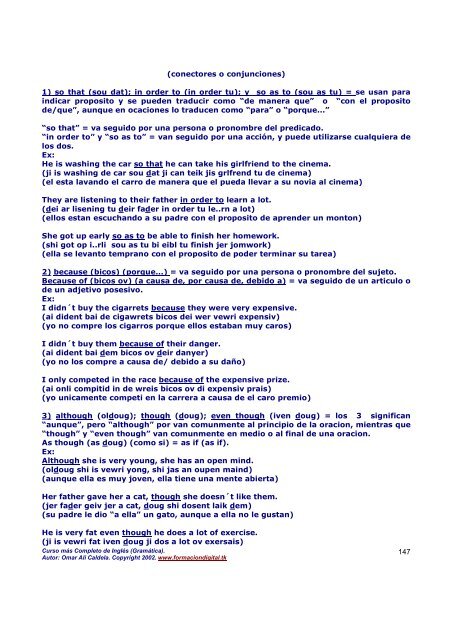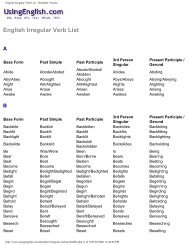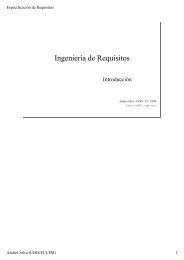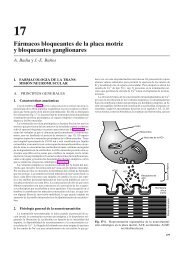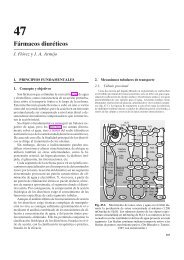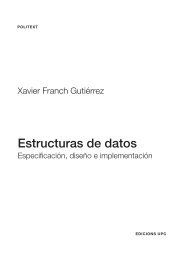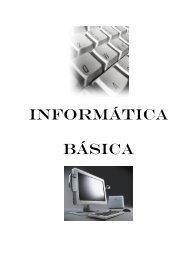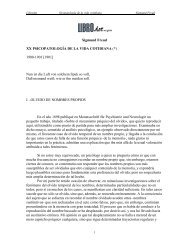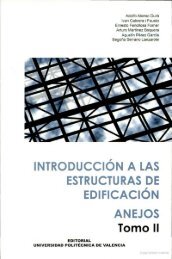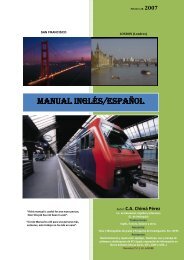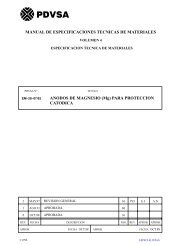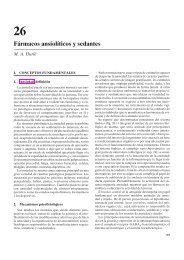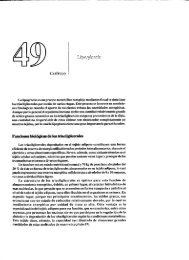EL CURSO MAS COMPLETO DE INGLES .pdf - sisman
EL CURSO MAS COMPLETO DE INGLES .pdf - sisman
EL CURSO MAS COMPLETO DE INGLES .pdf - sisman
You also want an ePaper? Increase the reach of your titles
YUMPU automatically turns print PDFs into web optimized ePapers that Google loves.
(conectores o conjunciones)<br />
1) so that (sou dat); in order to (in order tu); y so as to (sou as tu) = se usan para<br />
indicar proposito y se pueden traducir como “de manera que” o “con el proposito<br />
de/que”, aunque en ocaciones lo traducen como “para” o “porque...”<br />
“so that” = va seguido por una persona o pronombre del predicado.<br />
“in order to” y “so as to” = van seguido por una acción, y puede utilizarse cualquiera de<br />
los dos.<br />
Ex:<br />
He is washing the car so that he can take his girlfriend to the cinema.<br />
(ji is washing de car sou dat ji can teik jis grlfrend tu de cinema)<br />
(el esta lavando el carro de manera que el pueda llevar a su novia al cinema)<br />
They are listening to their father in order to learn a lot.<br />
(dei ar lisening tu deir fader in order tu le..rn a lot)<br />
(ellos estan escuchando a su padre con el proposito de aprender un monton)<br />
She got up early so as to be able to finish her homework.<br />
(shi got op i..rli sou as tu bi eibl tu finish jer jomwork)<br />
(ella se levanto temprano con el proposito de poder terminar su tarea)<br />
2) because (bicos) (porque...) = va seguido por una persona o pronombre del sujeto.<br />
Because of (bicos ov) (a causa de, por causa de, debido a) = va seguido de un articulo o<br />
de un adjetivo posesivo.<br />
Ex:<br />
I didn´t buy the cigarrets because they were very expensive.<br />
(ai dident bai de cigawrets bicos dei wer vewri expensiv)<br />
(yo no compre los cigarros porque ellos estaban muy caros)<br />
I didn´t buy them because of their danger.<br />
(ai dident bai dem bicos ov deir danyer)<br />
(yo no los compre a causa de/ debido a su daño)<br />
I only competed in the race because of the expensive prize.<br />
(ai onli compitid in de wreis bicos ov di expensiv prais)<br />
(yo unicamente competi en la carrera a causa de el caro premio)<br />
3) although (oldoug); though (doug); even though (iven doug) = los 3 significan<br />
“aunque”, pero “although” por van comunmente al principio de la oracion, mientras que<br />
“though” y “even though” van comunmente en medio o al final de una oracion.<br />
As though (as doug) (como si) = as if (as if).<br />
Ex:<br />
Although she is very young, she has an open mind.<br />
(oldoug shi is vewri yong, shi jas an oupen maind)<br />
(aunque ella es muy joven, ella tiene una mente abierta)<br />
Her father gave her a cat, though she doesn´t like them.<br />
(jer fader geiv jer a cat, doug shi dosent laik dem)<br />
(su padre le dio “a ella” un gato, aunque a ella no le gustan)<br />
He is very fat even though he does a lot of exercise.<br />
(ji is vewri fat iven doug ji dos a lot ov exersais)<br />
Curso más Completo de Inglés (Gramática).<br />
Autor: Omar Ali Caldela. Copyright 2002. www.formaciondigital.tk<br />
147


